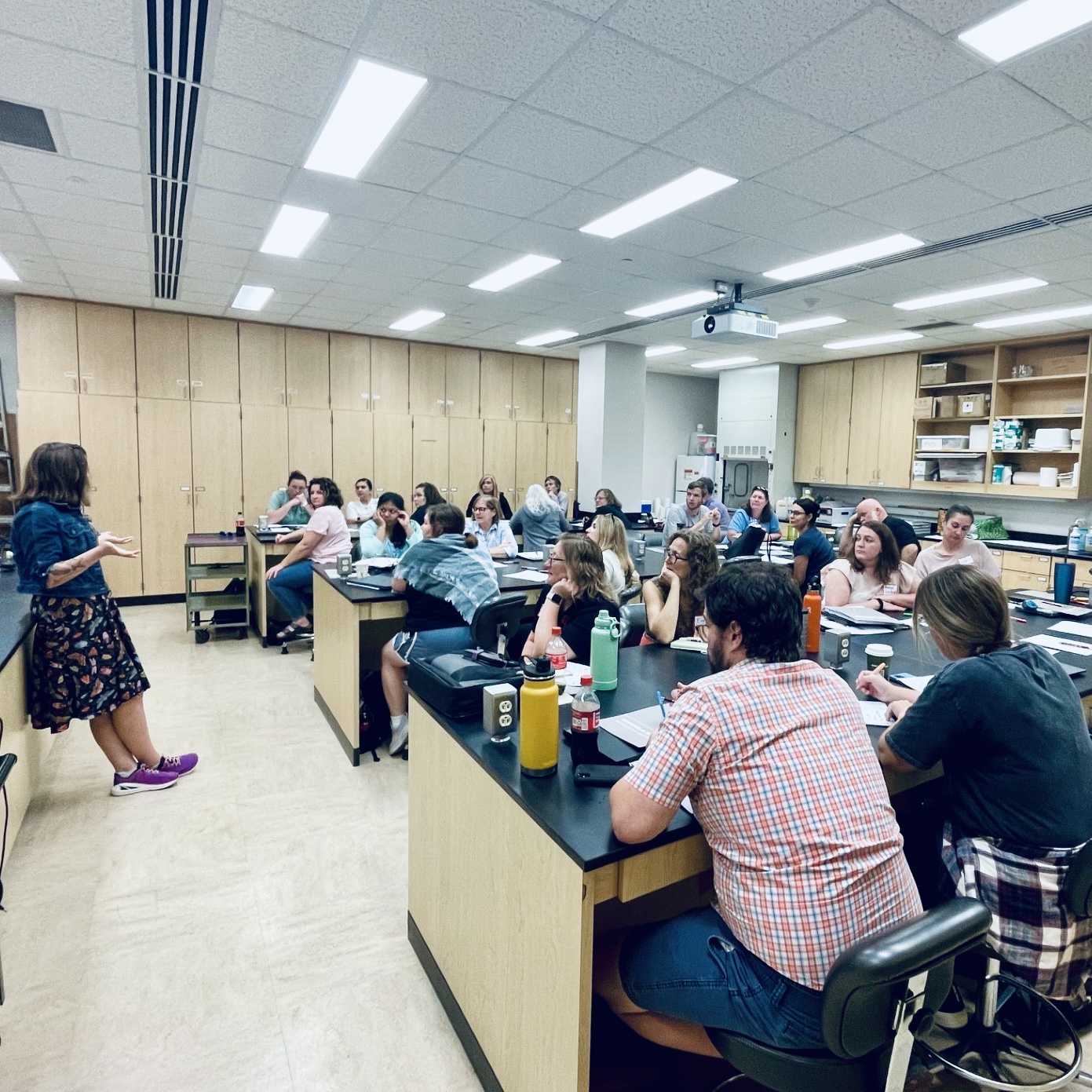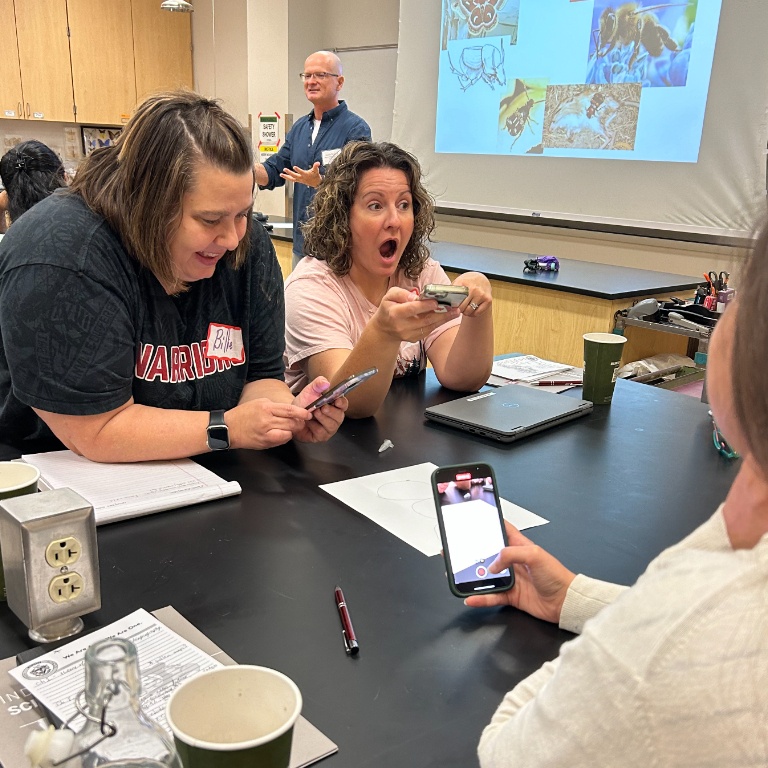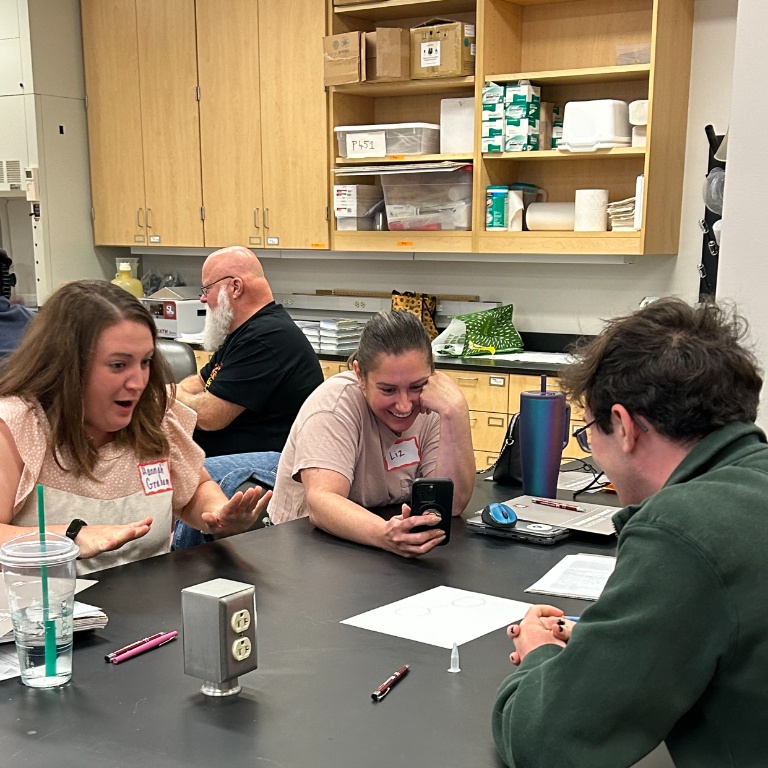Since 2017, the Educating for Environmental Change (EfEC) program has provided vital professional development for K-12 science educators, helping them navigate the challenging task of teaching the science and policy of climate change. Led by Indiana University faculty, including biology professor and department chair Armin Moczek, alongside Bloomington High School South science teacher Kirstin Milks, the program continues to offer hands-on, science-based workshops designed to deepen educators' understanding of climate change and foster community-wide engagement. EfEC’s efforts are enhanced through partnerships with the Environmental Resilience Institute (ERI) and the WonderLab Museum of Science, Health, and Technology.
EfEC's impact has been significant, earning Indiana’s top environmental honor in 2020, the Governor’s Award for Environmental Excellence. The program’s workshops, including a recent one held in collaboration with Moczek and Milks, have empowered educators to teach complex climate science in ways that inspire both understanding and action. “Anthropogenic climate change is one of the defining developments in our students’ lifetimes,” said Moczek. “But when teaching about climate change, it is often hard to know where to begin or how to avoid getting lost in doom and gloom—or conversely, inspire false hopes.”
Moczek emphasized that EfEC workshops aim to not only equip educators with rigorous scientific knowledge but also show them how to foster climate resilience in their students. The content delivered in these workshops is designed to help students grasp the past, present, and future impacts of climate change while encouraging them to think actively about solutions. Reflecting on the recent workshop, which brought together 24 teachers from south-central Indiana, Moczek shared: “Seeing how teachers engaged with the content, how we managed to integrate the science with engineering and climate advocacy, thanks to Kirstin, was a highlight for me. The fact that teachers spent their entire Saturday with us was truly empowering.”
Kirstin Milks echoed Moczek’s enthusiasm, adding that the workshop’s primary goal is to empower teachers to feel equipped to address big-picture issues in the classroom. “An important purpose of the workshop is equipping teachers to do these things [in their classrooms],” said Milks. “Oftentimes, teachers are asked by students how to solve these big-picture issues, and it can feel very pessimistic if teachers don’t have insight into the work that scientists and policymakers are doing right now.”
Milks highlighted how these workshops create a sense of community, where teachers can learn from each other and celebrate their collective knowledge. “I love watching people learn from each other,” Milks said, “and celebrate the knowledge that teachers bring to the table when learning about not just environmental and climate change, but also what it means to be a teacher in 21st-century America.”
Milks is driven by the belief that education is the key lever to solving the climate crisis, starting with young people in the community. “What better way to help teachers see what could be possible than by running a workshop where we put them in the driver’s seat as students, using engineering design principles to imagine and refine solutions,” she explained.
Moczek shares his inspiration for this work: “For me, most critical issues facing societies today are biological in nature, and a solid understanding of biology and strong intellectual tools are therefore essential for addressing them. So as a teacher, I aim to foster both biological literacy and intellectual competence, whether in the lab, an IU classroom, or a local high school. At the same time, I strive to instill an appreciation for the beauty, diversity, and complexity of the biological world, and students’ affinities within it.”
EfEC, through ongoing workshops like these, demonstrates the powerful synergy between scientists and educators. “We’ve collaborated quite a bit, and what I love about what Armin brings to the table is that he’s found ways for people of all ages and backgrounds to experience the wonder of science,” Milks said.



 The College of Arts
The College of Arts